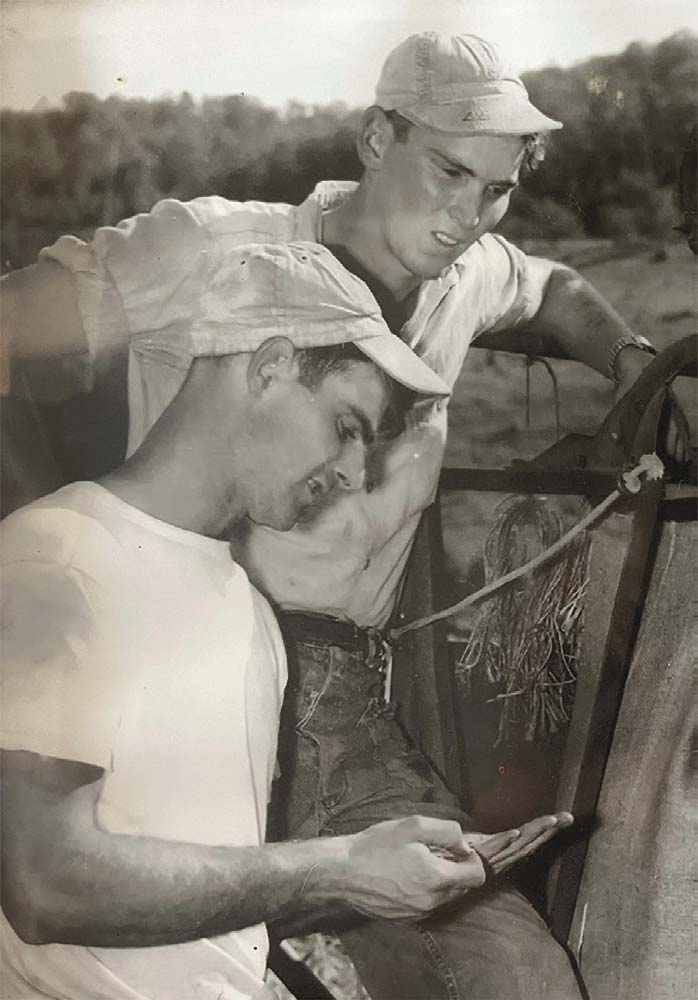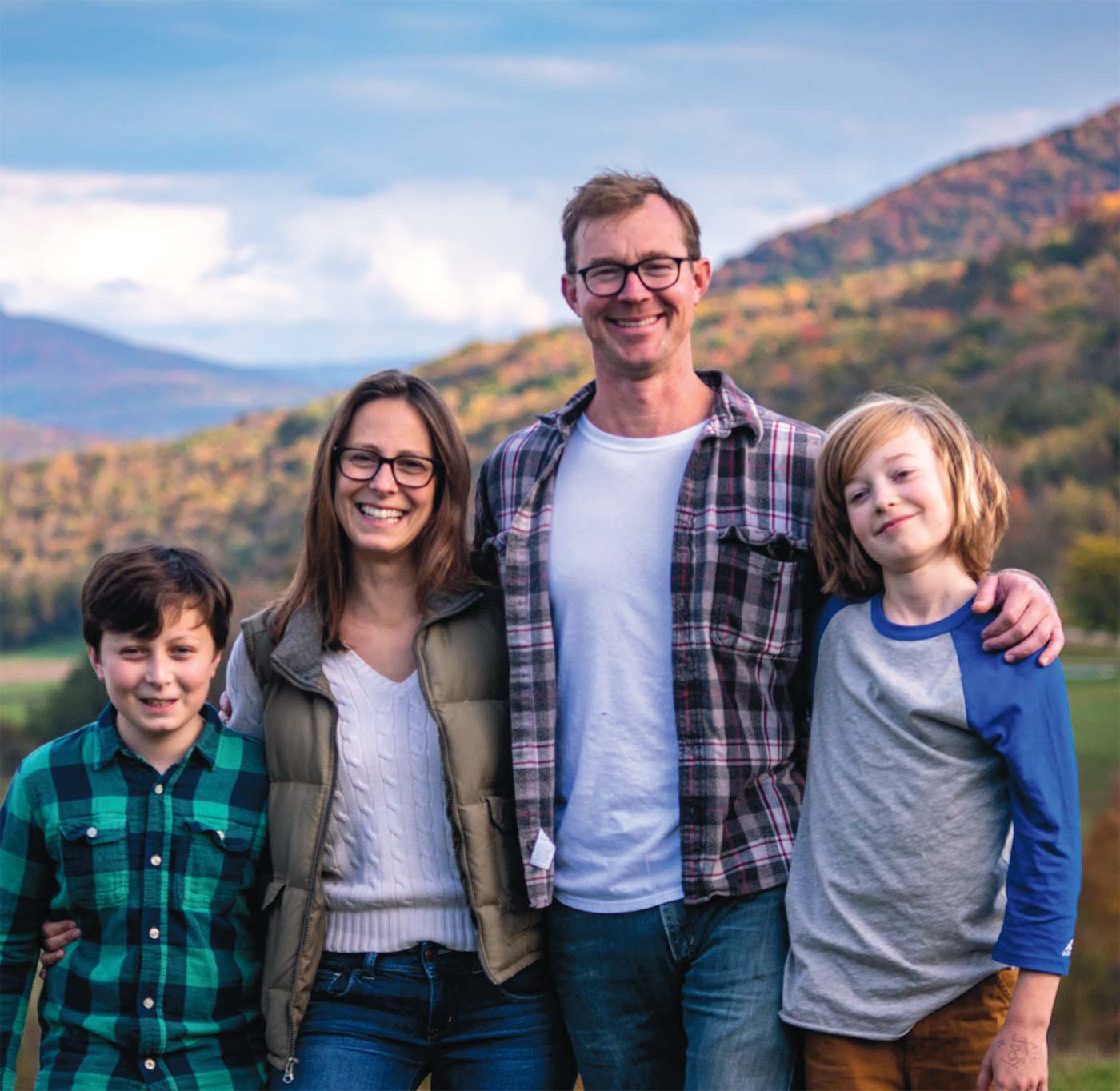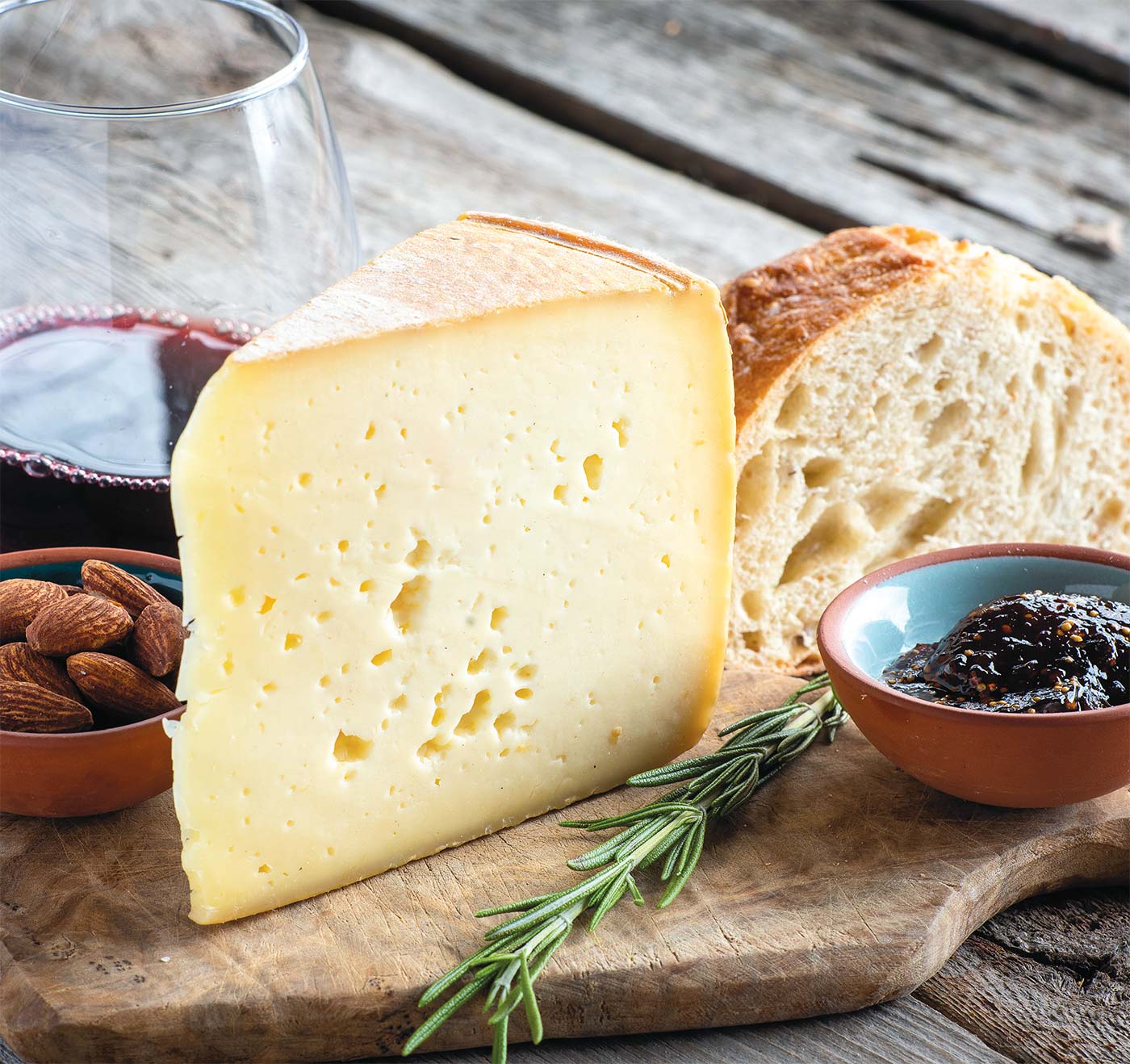Woodlawn Creamery, Pawlet
Woodlawn Creamery makes scrumptious cheeses, three named after places in the Mettowee Valley in southern Vermont. Pawlet cheese, like Havarti or Monterey Jack, is perfect for a grilled cheese or toasty ham sandwich. Rupert, aged 6 to 12 months and inspired by Gruyère and Comté, has a deep, mellow flavor. Emerson, Woodlawn’s fresh cheese, is named for a meadow near Woodlawn; a lively cross between curds and cream cheese, Emerson pairs especially well with smoked salmon. Just how did these wedges of deliciousness—and Southwind (a raclette-style Vermont cheese)— burst into being?
Let’s travel back in time and place.
Drive north on Vermont Route 30, past the stately white homes of Dorset until the road opens into the Mettowee Valley, gorgeous and green in spring, cropped and golden in fall. Use your imagination to flip back the months, years, decades, centuries. Settle for a moment into the frontier 1700s, when bunched oaks and maples rooted in the valley’s rich soil. In Revolutionary War times, soldiers came up from Connecticut and Massachusetts mustering in nearby Pawlet to fight the British.
After the war, the valley enticed carpenter James Leach to settle. In 1796, he built a two-story home off the road apiece for a local doctor. In 1831, the next generation of the Leach family bought it, and “that’s the last time it sold,” says Kate Leach, who lives there now with her husband, Seth, and their two sons, the seventh generation to live and work in the valley.

More than a half century ago, Seth Leach’s grandfather and great-uncle examine grain on the Woodlawn Farm. PHOTO: COURTESY LEACH FAMILY
It’s tempting to imagine that life is easy among such natural beauty. However, anyone with even a cursory knowledge of history and agriculture knows the struggles family farms have had over the last decades. Seth is quick to trace choices the last two generations have made to survive.
Seth’s father Tim took over the farm at 22, after his parents died young and in rapid succession. Tim’s approach to farming was simple: outwork and outthink everyone. “If you went back to the early ’80s and asked somebody, ‘who was the first person who had their corn in the ground?’ they’d say: ‘it was Tim Leach.’ Who was the first person who got their first cutting of hay?’ It would be Tim Leach.” Seth’s father took to heart that “there are deadlines with Mother Nature,” as Seth says. Pay attention and act accordingly. “The older I get,” says Seth, “the more I cherish my upbringing.”
Seth rises every morning at 3:00 to tackle the day’s chores. He drives the 4,000-gallon milk truck, delivering milk for Plymouth and Crowley cheeses, as well as Woodlawn’s. He used to drive up to Rutland to have the truck flushed and cleaned. However, Woodlawn recently converted a shed to allow the truck to be cleaned onsite, saving precious hours.
Large and small decisions suggest the day-to-day effort to manage work and the volatility of the supply chain. What happens if the price of feed shoots up? Or the price of their milk plummets? He raises dairy cows and cattle for beef, letting them forage on Leach lands but also growing grains, making the farm less susceptible to fluctuations in grain prices. He’s selling beef—and not just any beef, but wagyu beef bred for marbling. Woodlawn’s rib eye, for example, is juicy and flavorful for barbecuing; that and other cuts are on the menu at Barrows House in Dorset.
The Leach family has adapted, generation after generation, to work the land and to work with the land.

James, Kate, Seth, and Logan Leach represent the seventh and potentially the eighth generations of the family to farm in the Mettowee Valley. PHOTO: COURTESY LEACH FAMILY
Eager to make their own cheese while developing a more profitable outlet for the farm’s milk, Seth and Kate struck a deal earlier this year with Consider Bardwell, taking over its recipes for the award-winning Pawlet and Rupert cheeses and hiring cheesemaker Leslie Goff Tyminski.
The Leach family has adapted, generation after generation, to work the land and to work with the land. Our task is simple: Eat Woodlawn cheese, nod in appreciation that the Leach family is carrying on a creative tradition, and wonder what the next generation will bring.





